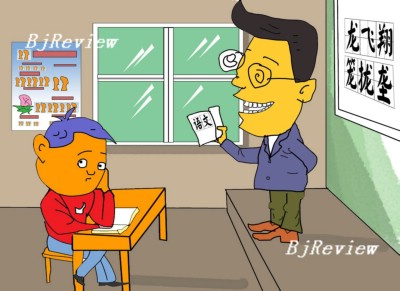
"What is your favorite subject?" I have put this question to hundreds of Chinese children and teenagers. My motive was not research as such but a desire to get students speaking English in response to a topic in their textbooks.
The most popular choices have been Physical Education, English and Math. Less than 5 percent of students opt for Chinese and only one, in my five semesters of teaching, has answered "history." The apparent popularity of English may reflect an element of flattery or politeness. But the results for Chinese and history should ring alarm bells. No country can afford this degree of disinterest in its own language and history and maintain a vibrant, healthy culture.
My next question is, "Why don't you like Chinese or history?" The answer is always to the effect that Chinese and history are boring.
Perhaps I am biased as a history graduate and someone who is trying to learn Chinese and enjoys Chinese literature. But I don't believe that these subjects are inherently more boring than English. It is also interesting that when I ask students who have only Chinese teachers of English, the few who can answer usually display the same sullen disinterest in English as they do in Chinese and history.
That raises questions about teaching methods. Foreign teachers (FTs) in China tend to go out of their way to make their lessons lively, interactive and interesting. Sometimes this is a result of pressure from money-minded private school owners who neither know nor care if students learn anything so long as the class is "exciting." Sometimes it is the result of pressure from well-heeled parents who want foreign "eye candy" to baby sit their little emperors and give them bragging rights over their neighbors because they can afford such exclusive entertainment. Other FTs are not seeking to be entertainers but believe that it is their duty to engage their students' interest and that doing so is the most effective way to ensure that real learning takes place. I count myself in the latter category.
Whatever the foreign teachers' motive, students generally seem to view English classes as more interesting than the traditional Chinese approach, which emphasizes students passively listening to the teacher, repetition and memorization. Many Chinese teachers I have talked to are privately aware of this. The problem is their response.
| 